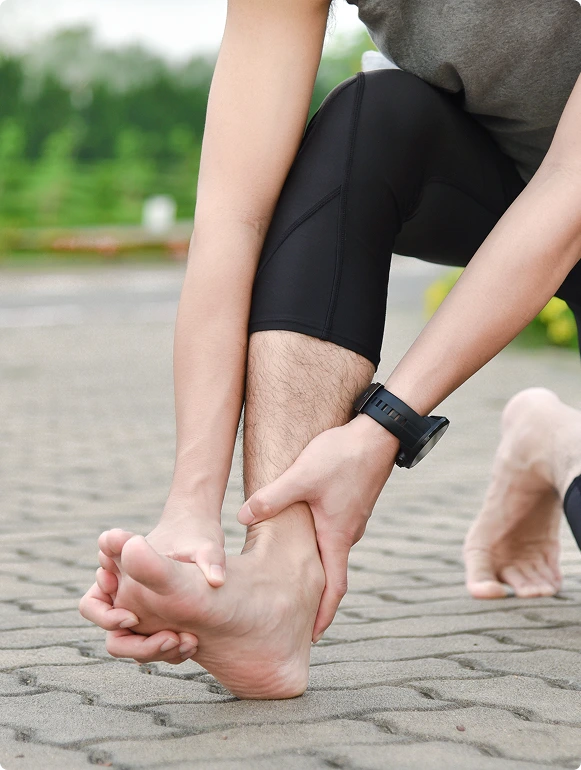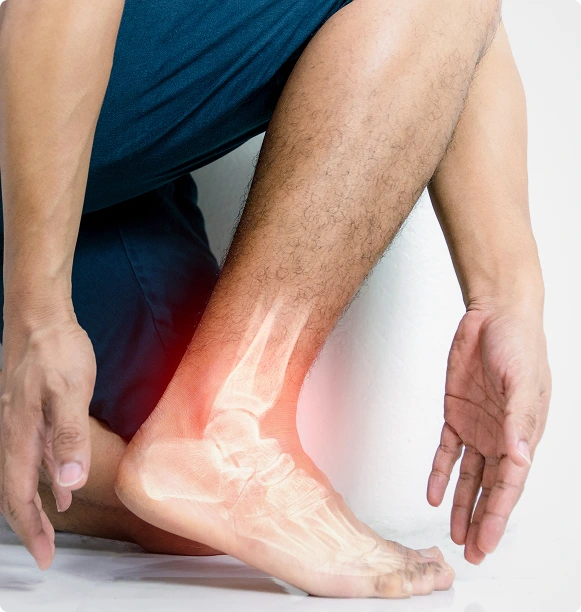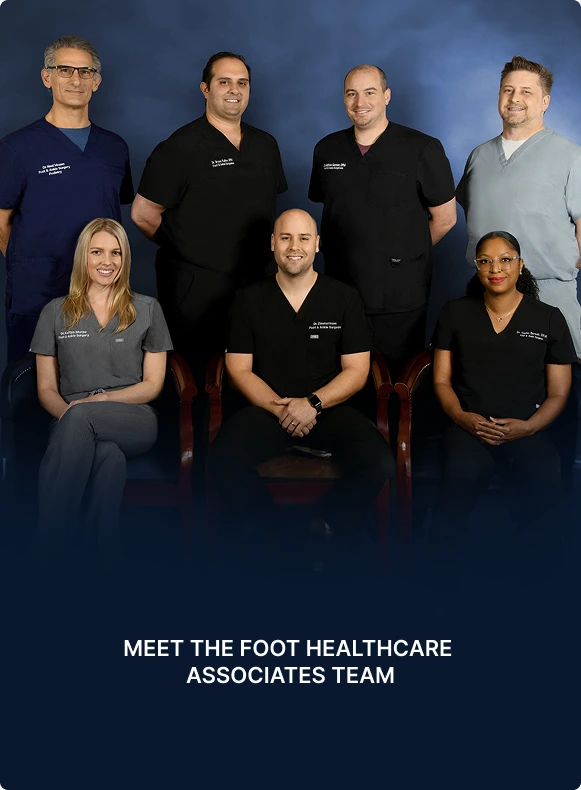Are you struggling with persistent heel pain or a sudden Achilles tendon injury? A damaged Achilles tendon can make even simple movements—like walking or standing—painful and challenging. Left untreated, this condition may worsen, leading to long-term mobility issues.
Foot HealthCare Associates specializes in Achilles tendon repair, offering advanced surgical and non-surgical treatments to help patients in Novi, Southfield, Howell, and Livonia regain strength and mobility. Whether you are dealing with a ruptured tendon, chronic pain, or weakness in the Achilles tendon, our experienced podiatrists are here to provide expert care.
With state-of-the-art techniques and a patient-centered approach, we ensure a safe, effective, and lasting recovery. Do not let Achilles tendon pain hold you back—discover how our treatments can restore your movement and improve your quality of life today!
Achilles tendon repair is a surgical procedure designed to restore the function and strength of the tendon after an injury. The goal of the procedure is to reattach the torn tendon fibers, eliminate pain, and prevent long-term mobility issues.
There are two main types of Achilles tendon repair procedures:

Achilles tendon injuries can range from mild inflammation to a complete rupture. Recognizing the signs early can help prevent further complications and ensure timely treatment. If you experience any of the following symptoms, it may be time to consult a foot and ankle specialist:

For patients with a severe Achilles tendon rupture or chronic tendon damage, surgery is often the most effective treatment. Achilles tendon repair surgery restores the strength, flexibility, and function of the tendon, preventing long-term mobility issues. Here’s what to expect before, during, and after the procedure.
Achilles tendon repair can be performed using one of two primary techniques:
Not all Achilles tendon injuries require surgery. For partial tears, mild tendonitis, or early-stage degeneration, non-surgical treatments can be highly effective in relieving pain, promoting healing, and restoring mobility. Foot HealthCare Associates offers comprehensive non-surgical solutions tailored to each patient’s condition.

Recovering from Achilles tendon repair requires patience, proper rest, and expert care to restore full strength and mobility. While recovery time varies based on the severity of the injury and type of procedure, most patients can expect a gradual return to normal activities over several months.
To protect the tendon, the foot is immobilized in a cast, splint, or walking boot.
Crutches or a knee scooter may be necessary to avoid putting weight on the affected leg.
Patients should keep their feet elevated and apply ice to reduce swelling.
Pain management includes prescription or over-the-counter pain relievers.
Achilles tendon repair is typically recommended for individuals with significant tendon injuries that impair movement or do not improve with conservative care. If you are experiencing ongoing pain or a complete rupture, surgical intervention may be the most effective option. Ideal candidates often include:
Whether surgical or non-surgical, Achilles tendon repair offers numerous benefits for patients suffering from tendon ruptures, chronic Achilles tendinitis, or mobility limitations. The procedure aims to restore strength, flexibility, and pain-free movement, helping patients return to their normal activities. You can expect the following benefits:

The cost of Achilles tendon repair can vary based on several factors, including the type of procedure, the surgeon’s expertise, facility fees, and insurance coverage. At Foot HealthCare Associates, we believe in transparent pricing and work with patients in Novi, Southfield, Howell, and Livonia to provide affordable, high-quality foot and ankle care.
The total cost depends on:
Most health insurance plans cover Achilles tendon repair surgery if deemed medically necessary. However, out-of-pocket costs such as deductibles, copays, and recovery expenses vary by plan. We recommend contacting your provider for specific coverage details.

When it comes to Achilles tendon repair, choosing the right provider is crucial for a successful recovery and long-term foot health. Foot HealthCare Associates is committed to providing expert care, cutting-edge treatments, and compassionate service to patients in Novi, Southfield, Howell, and Livonia, MI.
Do not let an Achilles tendon injury keep you from living pain-free and staying active. Whether you need surgical repair, non-surgical treatments, or expert rehabilitation, our team at Foot HealthCare Associates is here to help.
With board-certified podiatrists, state-of-the-art techniques, and personalized care, we ensure the best possible outcome for every patient in Novi, Southfield, Howell, and Livonia, MI.
©Copyright 2025 Foot Healthcare Associates.
©Copyright 2025 Foot Healthcare Associates.